Buying an electric car: Your complete guide
Even for enthused first-timers the prospect of buying an electric car can be daunting with new tech and jargon to adapt to. Our guide explains everything you need to know.
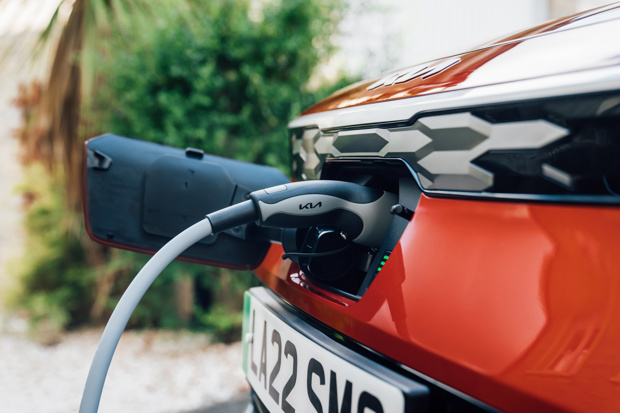
- Is an electric car right for you?
- How electric cars differ from plug-in hybrids and range extenders
- Are electric cars cheap to run?
Electric cars: The essential guide
Deciding whether or not an electric car is right for you is a little more involving than simply wanting to reduce your carbon footprint. To make the most of an EV, your typical daily commute shouldn't exceed a ballpark figure of 200 miles and you'd have easy access to a charging point once you were home again.
If you have guaranteed access to a charging point at work, then a commute of around 200 miles each-way is viable, if not especially desirable.
Of course, exactly how far an electric car will travel between charges - that's known as its range - is dependent on a number of factors, including its battery size, how efficiently you can drive it and the prevailing weather conditions.
Recent years have also seen enormous strides in expanding the nation's network of public recharging points, making longer journeys a much more viable prospect even for EVs with more modestly sized batteries.
Off-street parking at home is a big advantage as you can have a dedicated charging point installed, meaning you don’t have to worry about running cables across public paths or not getting parked near your house.
The cost of electricity to power an electric car is lower than petrol or diesel based on domestic prices, so you can save on daily commuting expenses, but it can prove expensive to charge up at the fastest public chargers, do so your homework ahead of a long journey.
You also won't have to pay to enter London's Ultra Low Emissions Zone (ULEZ) or any of the other clean air zones popping up across the UK as electric cars produce no CO2 or other harmful gases while being driven.
How much are electric cars?
How expensive electric cars are is one argument that's frequently levelled against them, which is said to put them beyond the reach of many private buyers who might otherwise consider swapping into one.
These high costs reference the list prices they are being sold for new but only a small percentage of car purchases are bought outright, with most private consumers opting for Personal Contract Purchase (PCP) or lease (PCH) finance deals.
Sure, the new list price of the car is a key factor in how much the monthly bill will be but its projected used value at the end of the term is also a significant influence.
Even with expensive cars, if the value is only expected to drop a relatively small amount, the monthly payments will be surprisingly attactive - for electric cars, their problem right now is that used values are not particularly strong, meaning depreciation is high, making each instalment much more expensive.
While used car value experts don't expect this to be a long-term issue, predicting when the price of good second-hand EVs will climb is tricky. Certainly, there are bargains to be had for canny used electric car buyers.
Although electric cars' list prices are often high, for context it's worth noting that all cars' prices have climbed significantly since Covid to varying degrees. Even the entry-level, petrol-engined Dacia Sandero, the least expensive car available in the UK, is approaching £14,000 new.
While they still cost more than the Sandero — and are smaller, meaning even less car for your money — less expensive EVs are available. At just under £15,000 the Dacia Spring is ideal for those driving mainly in cities, while the Citroen e-C3 is better suited for all kinds of driving and can be had for less then £22,000.
Why are electric cars so expensive?
By far the biggest influence on electric car's selling price are the costs involved with manufacturing their battery packs. However, as with most new technologies, as demand increases, costs fall as efficiencies are made from scaled-up production.
So while historically petrol- and diesel-engined cars have cost less to buy new than their fully electric equivalents, the crossover point where electric cars are cheaper to produce doesn't look too far away.
In fact, Vauxhall has recently announced that its new Vauxhall Frontera compact SUV will cost the same whether you choose hybrid or electric power.
Although electric cars remain pricier to buy than petrols and diesels, viewed overall when taking into account recharging versus refuelling costs plus less expensive servicing and parts prices, electric cars usually work out cheaper overall across the duration of a typical finance agreement.
One area costs are increasing for EVs is with taxation as 1 April 2025 marks the end of zero-cost VED car tax, meaning they will cost the same annually as petrols and diesels.
As more than half of the electric cars on sale today cost in excess of £40,000 new, they will also be liable for the additional premium VED car tax charge that's applicable from years two to five.
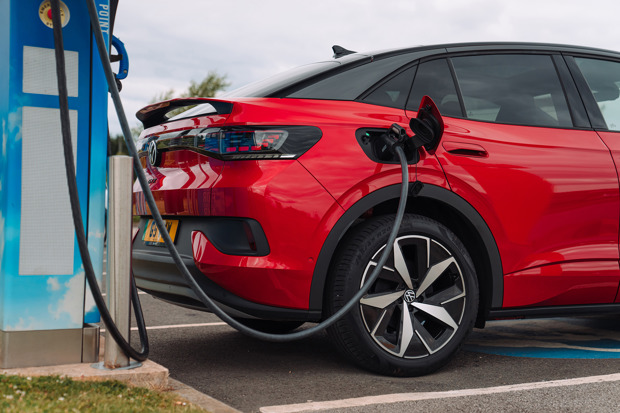
How much does it cost to charge an electric car?
This is question without a set answer, unfortunately, because much you pay to charge up your battery-powered car depends on a variety of factors.
The first is where you choose to connect your car to a power supply. If you hook up at work, your employer may be generous and swallow the entire cost of doing so, but don't bank on that arrangement being permanent.
At home, you’ll pay for electricity at the same rate as you do whenever you use any other electrical appliance. The cost comes down to what tariff you’re on from your electricity supplier and when you choose to charge your car.
From 1 October to 31 December 2024, Ofgem has set the domestic electricity price cap at 24.50p per kWh, plus a 60.99p daily standing charge.
To keep things simple, an electric car with a large, 100kWh battery, capable of delivering a minimum range of 300 miles would therefore cost a maximum of £24.50 for a full recharge, ignoring the standing charge.
However, nearly all electric car owners use an EV tariff, which charges at off-peak times and will drop the cost significantly.
For instance, with Ovo Charge Anytime you will pay just 7p per kWh compared with the standard rate of 30p per kWh. At that rate, to fully charge something like a VW ID.4 would cost just £5.39 - less than the price of just one gallon of diesel or petrol.
Most electric car owners will avoid public chargers unless absolutely necessary.
What's the range of an electric car?
This is the mid-2020s version of 'how long is a piece of string?' because there's no set answer.
While some EVs from a decade ago would struggle to manage 100 miles on a single charger, several of today's will comfortably exceed 300 miles.
No surprise then, that the 200-mile figure we used at the beginning of this piece is a sensible minimum range figure for a general-pupose electric car.
If you primarily potter around town, then you could easily get away with one with a smaller battery which requires recharging more frequently, whereas a larger battery will be of greater use for those who frequently cover long distances and don't want to stop too often.
As with a petrol or diesel car, the more agressive you are with an EV's accelerator, the faster it will consume electricity.
Incidentally, we indicate electrical consumption in units of miles/kWh - as a rule of thumb, 3.0 to 3.2miles/kWh is about average, so dipping into the two-point-somethings will decimate your available range, while nearing or beating 4.0miles/kWh could extend it.
How long do electric cars take to charge?
Recharging times for EVs is one area where those keen to spread misinformation have gained significant traction with their anti-electric car agenda.
Based on current technologies, there are two truths regarding EV charging — zapping the batteries back up to full capacity does take longer than brimming the tank on a petrol or diesel car yet by making some small adjustments to your routine it can be more convenient to plug in.
What makes recharging times appear to be a complex subject is there's no single answer to the question — while this is also true of petrol and diesel cars, they have fewer variables that influence the time required to refill their tanks and no new terminology to get your head around.
So, let's break recharging down to understand the various influences on times:
Battery capacity
While the volume of a petrol or diesel car's fuel tank is quoted in litres — and gallons on occasion, still — electrical energy, such as that stored in EV battery packs, is measured in kiloWatt hours, or kWh for short.
It's a standardised measurement that can be applied to any electrical device to refer to both energy storage or consumption.
Logically enough for energy storage, the higher the kWh number, the greater the amount of electricity the batteries can store. If a manufacturer quotes an EV as having a 100kWh battery, it's easy enough to understand that will hold twice the amount of electrical energy as a 50kWh one.
So, a 100kWh battery will take twice as long to charge as a 50kWh one, right? Yes, but only if everything else is equal, and it rarely is.
On-board charger
On-board chargers are components within EVs that essentially cap the flow rate of electricity into the battery pack. The vast majority of electric cars have two on-board chargers, one for alternating current (AC) the other for direct current (DC).
Because of the way the electrons switch back and forth with AC, the flow of electricity is slower and less powerful. This makes it more manageable and less costly for domestic use, where the majority of appliances don't need high flows of electricity to operate.
Depending on the car, the AC on-board charger is typically rated at 7kW or 11kW, with a handful of newer models able to deal with 22kW.
However, AC isn't up to the task of charging an EV's battery quickly, which is where DC comes into its own. Usually only availble from dedicated public chargers rather than those installed at domestic or commercial premises, DC charging is much faster and more powerful because the electrons flow consistenly on one direction.
With a modern electric car, a 50kW DC on-board charger is considered on the poor side, with 100-150kW being average and the current most powerful being in the 250-350kW bracket.
The higher the power flow the on-board charger can manage, the quicker the recharge, again assuming everything was equal.
Already you can begin to appreciate how charging times vary — an EV with a 100kWh battery and a 200kW DC on-board charger should take pretty much the same time to recharge as a 50kWh battery and a 100kW DC on-board charger.
Electricity source
Whatever power source you connect an EV to, it's vital to recognise that not only does electricity not flow at a constant rate, neither do batteries accept that flow consistently.
Instead of a being a steady, linear rate of charge, batteries are replenished along what's known as an S-curve because of how the electricity flow looks when plotted on a graph.
Usually, the first 10% and last 20% of a battery's overall capacity is charged at a much slower rate than the 70% in the middle.
How much energy remains in the battery - that's the State of Charge, or SoC for short - when the car's plugged in will therefore also influence the charging time — if it's at 5% the intital flow will be slower than one hooked-up with 25% remaining.
Electricity sources are typically split into three groups:
Slow. This is the kind of connection you would typically only use in an emergency, becuase the AC flow rate is usually around 2.3kW. That's because a slow source is essentially what you get by charging your EV by connecting it to a conventional three-pin plug socket. A full recharge of a 50kWh battery on a slow connection will typically take around 24 hours.
Fast. Domestic wallbox chargers and public charge points that are usually physically smaller and often require you to connect your own cables are typcally AC types with flow rates of 7kW to 22kW. For almost all current EVs, this will be a Type 2 connection plugged into the car, which looks like a flat-topped circle with seven internal pins.
The name fast is somewhat misleading, though, given a 7kW flow will usually require around 9-10 hours for a full recharge of a 50kWh battery. However, for most EV drivers, this can usually be done overnight, meaning when you leave in the morning your battery is full — very convenient.
Rapid. Any kind of DC public charger with a flow rate of 50kW or higher is considered rapid, although several companies brand those capable of 150kW or more as ultra-rapid.
A full recharge of a 50kWh on a 50kW rapid charger won't take an hour due to that flow not being linear but it shouldn't take longer than 90 minutes. Remember, there's no benefit to connecting your car to a rapid charger with a higher flow rate than its on-board charger can will accept. For EVs capable of receiving an ultra-rapid charge, adding 100 miles of additional range can take 10-15 minutes.
Other influencing factors
External temperatures will also affect the time an EV's battery takes to recharge, with both hot and cold extremes slowing the process down. Unless you have a temperature-controlled garage, there's not much you can do about that.
Some electric cars are available with what are usually listed as heat pumps as standard or optional equipment, which can warm through the battery back on freezing days and improve the recharging rate. The name can be a little misleading because they can also condition batteries to cool them down when it's especially hot.
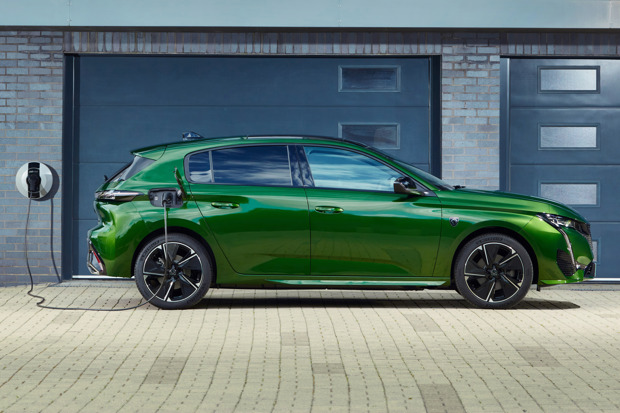
How do you charge an electric car?
It's not flippant to suggest that charging an EV is very similar to replenishing the battery on your mobile phone - it's just that the device and cables have been scaled-up. So long as you can attach a cable between the car and a mains electricity supply, you can recharge an electric car anywhere.
While you can charge up an EV using a cable fitted with conventional three-pin plug, it's not something we'd recommend long-term.
Your typical flow rate of electricity is around 1.8kW using this method - while battery charging isn't constant or linear, basic maths indicates that even a modestly size 36kWh battery would therefore require around 20 hours' charge.
If you a driveway, off-street parking or a dedicated bay available, a domestic charging point - usually known as a wallbox - is the best bet.
As well as making it easier, quicker and safer to attach your car for recharging, it takes less time to top up the battery because the cable and connection can handle a faster flow of power, typically between 7.4kW and 11kW depending on the type of mains electricity you have installed.
The faster types of public chargepoints have even thicker cables and a meatier plug, capable of delivering a flow between 50kW and 350kW, although most are between 100kW and 150kW.
Although the higher the rate of electricity flow the quicker the charge is fine in theory, a limiting factor is the EV's on-board charger which regulates the maximum rate it will accept.
For instance, an EV with a 50kW on-board charger connected to a supply with the potential to flow at 350kW will still only be accepted by the car at 50kW, whereas a model with a 200kW on-board charger hooked-up to a supply at 100kW will easily deal with all 100kW.
How much does a home wallbox typically cost?
Having a quicker type of charger installed at home means you can zap-up the car's battery at least 2.5 times as fast compared with using a three-pin plug, so it's worth having. Budget on spending between £280 and £1000 depending on your car and the type of charger you choose.
Some new electric cars include the cost of fitting a wallbox charger at your home or office within the price of the car, so use that as a bargaining chip if you're considering buying one without such a deal.
If you live in a flat or rented accommodation you can still benefit from the government’s Electric Vehicle Homecharge Scheme (EVHS), which provides support for getting a wallbox fitted, with a grant of up to 75% of the cost, capped at £350, including VAT.
Given that the majority of chargers costing £350 do the majority of things most consumers require anyway, spending larger sums on a wallbox won't make sense for most people.
However, homeowners (including people with mortgages) who live in single-unit properties such as bungalows and detached, semi-detached or terraced housing, no longer qualify.
It’s also a good idea to have a smart electricity meter installed so you can choose when to recharge your EV using the cheapest tariff.
How long do batteries last in electric cars?
An electric vehicle’s battery will easily last as long the engine in any comparable model with a petrol or diesel engine. The key to this is regular use, so the battery discharges and is recharged routinely. Like any car, EVs work better when they are used often and with care.
Some of the longest-serving EVs are now over 20 years old and still working on their original batteries. However, performance will drop off and most drivers and experts feel that when a battery drops below 70% of its original capacity it is due for replacement. That could be many years before it happens as there are plenty of EVs in daily use that have notched-up well over 100,000 miles and are still going strong.
Makers of EVs are also sufficiently confident in the batteries to offer long warranties. In most cases, that cover extends to eight years and 100,000 miles, typically guaranteeing that 70% capacity as a minimum.
Should there be a fault with the battery in an EV, it should be replaced by the car maker under warranty in exactly the same way they would with a petrol or diesel engine. This assumes you have stuck to the terms of the warranty and had the car serviced properly.
If you’re unlucky enough to have to replace a battery in an EV ooutside of warranty, it’s an expensive component and will likely not make economic sense to do so.
In a top of the range Tesla, that could be as much as £25,000, while a new Nissan Leaf battery costs around £5000. However, the good news is these prices are coming down rapidly as more EVs are sold and economies of scale reduce the price of replacement batteries.
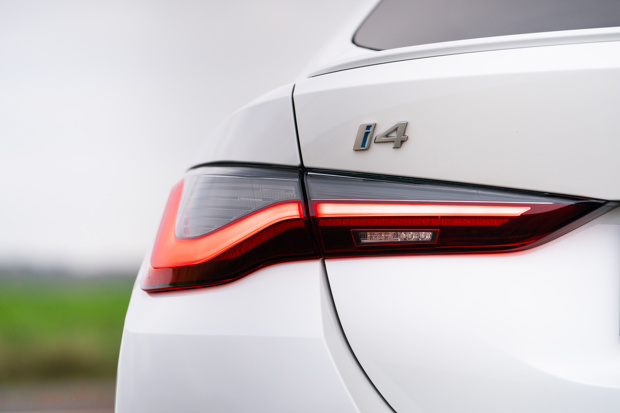
How do you know how much charge is in the battery?
Checking how much charge is in an EV’s battery is as simple as looking at the gauge on the dashboard. Just as with a petrol, diesel or hybrid car’s fuel readout, an EV’s will tell you the battery’s charge usually with a graphical display of the percentage and a count of how many miles of range is available.
It’s also possible to check the battery charge remotely in many EVs using a smartphone app. This lets you look at vital information such as battery charge, range and how long it will take to fully charge up the power pack.
You can also use these apps to remotely programme the car to only charge up on low-cost electricity tariffs and pre-heat or -cool the cabin before you get in so it’s not wasting battery range on these systems as you drive.
Are electric cars' batteries owned or leased?
When electric cars were in their infancy, with both Nissan and Renault leading the charge - pun very much intended - customers were given the option to lease the battery packs separately from the car or bundle them together.
It wasn't a popular business model, with most customers opting for the combined price, and the leasing option was soon dropped.
All EVs sold today have the cost of their batteries included in the overall cost of the car.
Where can I charge an EV for free?
The EV charging network is expanding rapidly, so you should be able to find a charger close to wherever you’re travelling to.
If you’re unsure, you can check online to see what facilities are offered at most car parks, shopping centres and supermarkets, where the dedicated spaces are usually clearly signposted. These days it's unusual to find a drive-through fast food restaurant or café that doesn't have EV chargers installed.
Many supermarkets still offer free recharging at their facilities but not usually in conjection with the fastest types of connections. Needless to say, being of no cost, they are usually swamped as soon as they become available.
To find other charging points, there are online maps such as ZapMap, although this still suggests some on private driveways that aren't publicly accessible.
Most EVs' in-built navigation systems have a function to find charging points, often with live updates about their availability. Choose which one suits you best, programme the navigation and it will take you directly there.
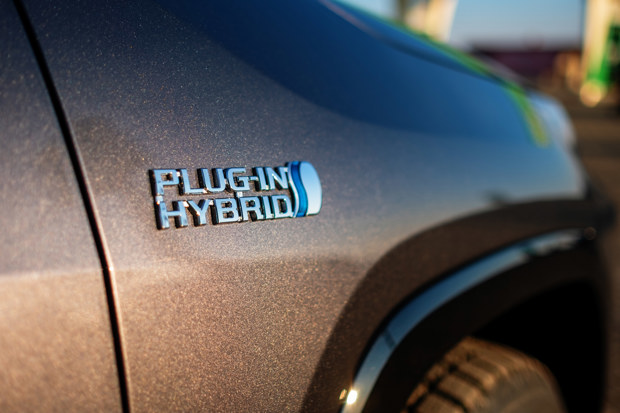
What's the difference between an electric car and a plug-in hybrid?
Plug-in Hybrid Electric Vehicles, usually shortened to PHEVs, can be confused with fully electric vehicles (EVs) because both come with a battery, each can be charged by connecting to a mains electricity supply and both are capable of zero tailpipe emissions.
However, as the 'H' in PHEV implies, they have more than just an electric motor to propel them along. Whether this is a petrol or diesel, it means a PHEV is still reliant on more than just battery energy for its motion.
For most buyers of PHEVs, the deciding factor is greater range as a plug-in hybrid is less reliant on being charged for every journey. However, this also means PHEVs emit carbon dioxide from their tailpipes while pure EVs don't, plus plug-in hybrids won't offer as great a range on battery power alone as electric cars manage.
What's a range extender?
If you think of a PHEV as a hybrid car with a larger battery than usual that's most efficiently charged by hooking it up to the mains, a range extender (occasionally shortened to REX) is an electric car that happens to have an engine to purely act as an on-board generator.
In other words, the engine isn't directly involved in driving the car and it typically only fires into life when the remaining charge within the battery gets low.
Few REX cars have been sold in the UK previously, with some versions of the BMW i3 along with the Chevrolet Volt and Vauxhall Ampera twins being the most common.
Today, Mazda sells a range-extender version of its Mazda MX-30 — although confusingly refers to it as a PHEV on its website — while the latest LEVC taxi cabs also used REX technology.
How many electric cars are in the UK?
According to EV charging point location specialists Zap-Map, at the end of September 2024 there were 1,985,273 plug-in cars on the UK's roads, of which approximately 1,250,000 are fully electric.
Given that there are in the region of 34 million cars registered in the UK, the proportion that are full EVs is 3.75%.
In isolation, that doesn't sound particularly impressive but consider that at the end of 2020 there were just 205,770 electric cars registered in this country, representing 0.6% of all cars on the road.
In order to avoid expensive government-levied fines, car manufacturers want and need the proportion of new sales to be at least 22% in 2024, so there's work to be done to increase the year-to-date figure up from 17.8%.
Nevertheless, the percentage of EV sales is generally trending upwards and in a short space of time - for the whole of 2020, electric cars took just 6.6% of the share of all new sales in the UK.
Tips for improving your electric car's range
One of the most common concerns with EVs is battery range — how far you can travel on a single charge. That depends on how, when and where you use the car, but there are ways to extend the battery’s range.
Make sure the battery has a full charge
The first — and most obvious — way to get the maximum mileage from an EV is to make sure the battery is a fully charged before you set off. Wherever you go, there’s often somewhere to plug in and top up the charge.
Use air-con sparingly
In hot weather, air conditioning can be essential but try to use it only some of the time to cool the cabin. Switch it off when the interior is at a comfortable temperature and only turn the air con on again when it gets warmer inside the car. Many EVs' climate control systems use air-con intelligently to maximise range with it on. You can also open the windows to create a cooling breeze at lower speeds, though you should close them at higher speeds to make the car as efficient as possible at driving through the air.
Keep tyres in good condition
It’s good advice in any car to make sure its tyres are in good condition, especially with EVs. Under-inflated tyres cause drag that uses more energy to move the car, while over-inflated tyres don’t offer sufficient grip for braking and cornering. The correct tyre pressures for your model will be in the owner’s handbook.
Dump the junk in the trunk
Get rid of any rubbish or heavy items you're unlikely to need regularly. It’s amazing how much clutter can accumulate in a car’s cabin and boot. It’s all excess weight that needs more energy to haul about, so clearing out the junk from your EV is a free way to boost range and performance.
Plan ahead
Plan your route. If you know a route is going to be congested, check out if there’s another way that is more free-flowing. Although an EV doesn’t use fuel when it’s stationary, you will use energy for lights, wipers, air con, stereo and charging smart devices.
Chose your drive mode wisely
Use driving modes intelligently and avoid those which maximise power and acceleration. Many EVs come with a selection of driving modes to tailor the car’s responses to how you want to drive. If there’s an Eco mode, select this when you want to get the maximum range from the car as it will restrict power to the air con and maximise regenerative braking.
Use regenerative braking
When you need to slow down, anticipate further ahead so you can make the most of regenerative braking, which charges up the battery with energy that would otherwise be lost through heat and noise as you apply the brakes. Instead, this energy is harvested and returned to the battery.
Coast to coast
Coasting is when you let the car travel along with no pressure on the throttle pedal. It’s most effective when driving down long, gentle slopes like you find on many motorways. When you coast, there’s no energy being taken from the battery and you may even recharge it slightly if your EV has this type of regenerative braking system.
Take it steady
Planning your journey and leaving a little earlier mean you won’t be in a rush and that’s good for battery range. This is because you can drive at a relaxed, steady pace where you don’t need to keep braking and accelerating, which uses more power than cruising.
Give yourself a pre-heat treat
On cold days, you can pre-heat the cabin of many EVs while they are still plugged in to the charger. This means the interior is warm before you drive off, saving energy right from the start. If your car has heated seats, use these instead of the air conditioning or climate control as they draw less power from the battery. Most EVs will also let you chill the car's interior on a hot summer's day, making the cabin a blissful oasis.
